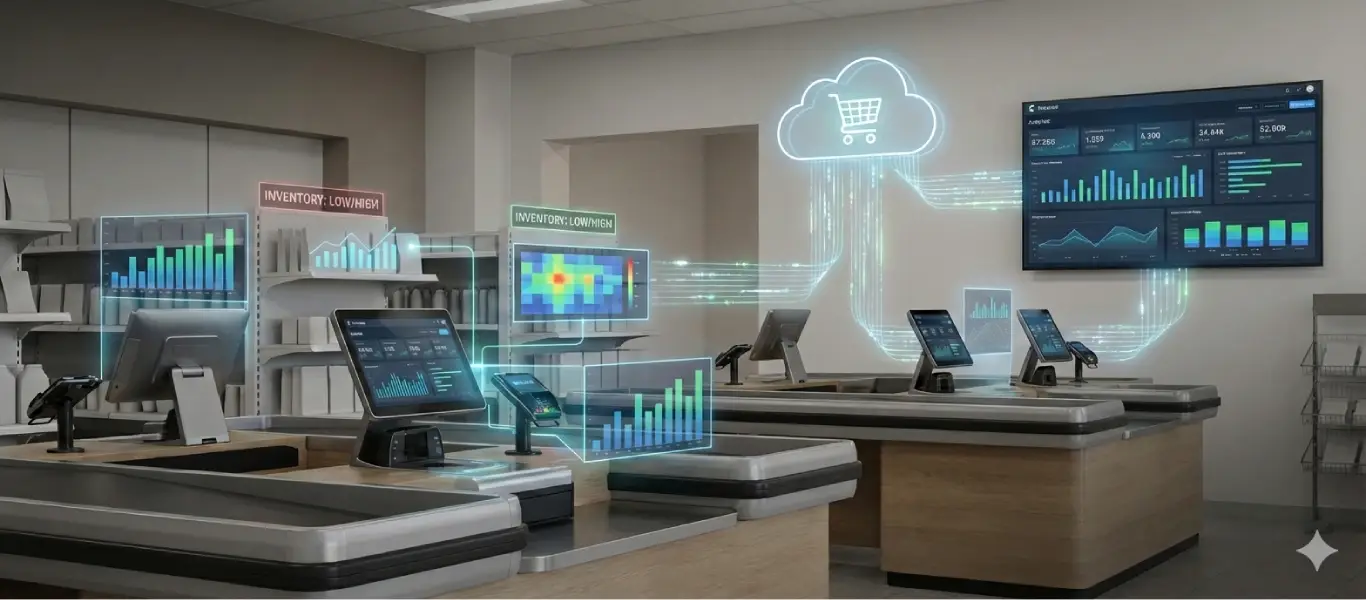Introduction: Why B2B Success Now Depends on Marketplace Integration
B2B commerce is undergoing a seismic transformation. According to UNCTAD (2024), the global B2B eCommerce market is expected to reach $36 trillion by 2025. For many enterprises, the message is clear: marketplaces are no longer optional; they are the new growth infrastructure.
Yet, the challenge lies beneath the surface. While over 60% of organisations are integrating marketplaces into their digital ecosystems (Gartner, 2025), many still wrestle with siloed systems, fragmented data, and inconsistent buyer journeys.
At SkillNet Solutions, we view marketplace integration as more than a technology exercise. It’s a strategic enabler; one that synchronizes pricing, catalogs, and fulfilment across every channel, unlocking scalability and resilience. Integration, when done right, builds the foundation for true omnichannel excellence.
The Marketplace Ecosystem: Who’s Involved and Why It Matters
Building an effective marketplace strategy begins with understanding its ecosystem. It’s a living network of interdependent stakeholders that shapes the flow of trade and data.
- Operators – Platforms like Amazon Business, Alibaba, or ThomasNet define marketplace governance, visibility algorithms, and compliance frameworks.
- Sellers – Enterprises managing catalogues, pricing, and fulfillment rely on seamless integration to avoid errors and lost opportunities.
- Buyers – Modern buyers expect autonomy, transparency, and instant availability. 73% of B2B buyers now prefer digital-first procurement journeys (McKinsey, 2024).
Increasingly, vertical marketplaces in sectors like healthcare, manufacturing, and automotive are emerging as specialised growth hubs. For enterprises, integration isn’t just about access; it’s about participation in these new trade ecosystems.
Why Integration Is the Next Growth Lever for B2B Enterprises
Integration delivers more than operational alignment, it drives measurable business outcomes:
- Speed-to-Market: Automated synchronisation eliminates delays, ensuring listings, pricing, and inventory reflect real-time availability.
- Operational Efficiency: Streamlined ERP-CRM-marketplace connectivity reduces manual entry, errors, and bottlenecks.
- Customer Personalisation: Unified data fuels tailored recommendations and cross-sell strategies.
- Market Reach Expansion: Integration enables enterprises to simultaneously serve multiple marketplaces and geographies.
In fact, integrated enterprises enjoy 30–40% faster sales cycles compared to those operating with legacy silos (Forrester, 2025).
SkillNet recently partnered with a global manufacturer to connect SAP, Salesforce, and three major marketplaces. The result? A 32% reduction in procurement lead time and 20% improvement in order accuracy—a tangible demonstration of how strategy and technology converge for growth.
Key Marketplace Integration Models
Every enterprise’s integration approach depends on its maturity, tech landscape, and compliance requirements:
- Direct API Integration: Enables real-time, point-to-point data exchange between enterprise systems and marketplaces, ideal for businesses with modern ERP or CRM infrastructure.
- Middleware/iPaaS Integration: Tools like MuleSoft, Boomi, or Celigo simplify complex integrations, offering standardised data orchestration with minimal custom coding.
- Custom Hybrid Architecture: Tailored for highly regulated or process-heavy industries such as pharmaceuticals or automotive, where control and compliance are non-negotiable.
Still, 45% of enterprises cite fragmented technology stacks as the biggest barrier to scaling their marketplace operations (Gartner, 2025).
SkillNet’s modular frameworks and accelerators help enterprises select the right model, combining flexibility with governance to enable future-ready commerce.
Challenges in Marketplace Integration
| Challenge | Impact | Recommended Fix |
|---|---|---|
| Legacy ERP Systems | Slows synchronisation | Adopt API-first frameworks |
| Data Inconsistency | Incorrect pricing/inventory | Establish master data governance |
| Compliance & Security | Risk of breaches | Use tokenised API connections |
| Channel Conflict | Pricing discrepancies | Define clear multi-channel policies |
| Operational Misalignment | Workflow duplication | Centralise order management |
SkillNet’s integration accelerators address these complexities with pre-built connectors, cloud-native frameworks, and governance-first workflows—transforming challenges into opportunities for scalable growth.
Business Impact of Successful Integration
When executed strategically, marketplace integration becomes a revenue catalyst:
- Efficiency: Up to 60% reduction in manual operations.
- Scalability: Supports hybrid models like B2B2C or D2C without replatforming.
- Profitability: Improved fulfilment accuracy enhances retention and lowers returns.
- Visibility: End-to-end insights into demand, buyer behaviour, and performance metrics.
A leading CPG brand achieved 25% improvement in on-time delivery and a 32% cut in procurement lead time after implementing a SkillNet-led integration framework across multiple B2B platforms.
Do you need help with your Marketplace Integration?
From Integration to Intelligent Orchestration
The next evolution of B2B commerce isn’t just connected; it’s intelligent. Integration forms the backbone, but orchestration turns it into a dynamic, learning ecosystem.
- Composable Commerce: API-first modularity ensures flexibility and speed.
- AI-Powered Marketplaces: Predictive algorithms optimise pricing, inventory, and promotions.
- Omnichannel Synchronisation: Ensures a seamless brand experience across B2B, B2C, and D2C channels.
- ESG Visibility: Integrated data enhances sustainability and compliance reporting.
By 2026, over 58% of marketplaces will incorporate AI-driven dynamic pricing (Deloitte, 2024). Enterprises that combine composability and AI today will lead tomorrow’s intelligent trade networks.
Best Practices & Actionable Steps for Enterprises
- Start Small, Scale Fast: Begin with high-impact marketplaces and expand incrementally.
- Master Marketplace Algorithms: Invest in enriched content and structured product data.
- Governance by Design: Build clear ownership, audit trails, and security protocols.
- Leverage Strategic Partnerships: Collaborate with technology and consulting partners like SkillNet to accelerate integration and innovation.
- Continuous Optimisation: Establish KPI-driven feedback loops to ensure sustained performance.
Conclusion & Key Takeaways
Marketplace integration is now a strategic imperative for enterprise growth. It bridges data, processes, and people, creating a foundation for agility and innovation.
Organisations that embrace API-first integration and composable architectures gain:
- Faster time-to-market and optimised sales cycles
- Enhanced efficiency and reduced operational errors
- Real-time insights for personalisation and retention
- Scalable frameworks for multi-channel growth
SkillNet Solutions brings decades of retail and commerce expertise to help enterprises turn integration into transformation; seamlessly, securely, and strategically.
Learn more about SkillNet’s:






 Engenharia
Engenharia







